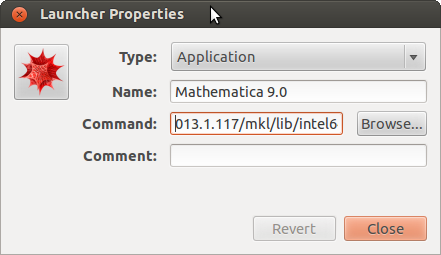I have successfully installed CUDA 5.0 on my Ubuntu 12.10, with driver 304.54, toolkit and samples. Running deviceQuery gives me a successful output:
Detected 1 CUDA Capable device(s)
Device 0: "GeForce 9500 GT"
CUDA Driver Version / Runtime Version 5.0 / 5.0
CUDA Capability Major/Minor version number: 1.1
Total amount of global memory: 512 MBytes (536543232 bytes)
( 4) Multiprocessors x ( 8) CUDA Cores/MP: 32 CUDA Cores
etc...
bandwidthTest is also successful:
Device 0: GeForce 9500 GT
Quick Mode
Host to Device Bandwidth, 1 Device(s)
PINNED Memory Transfers
Transfer Size (Bytes) Bandwidth(MB/s)
33554432 5628.6
etc...
I stress that my card is listed among the compatible CUDA cards for Mathematica. However, in Mathematica 9.0.1.0, running
Needs["CUDALink`"]
CUDAQ[]
returns
False
running
CUDAInformation[]
returns
CUDAInformation::invdriv : CUDA was not able to find a valid CUDA driver.
Refer to CUDALink System Requirements
and running
CUDADriverVersion[]
returns
CUDADriverVersion::nodriv :
CUDALink was not able to locate the NVIDIA driver binary.
Refer to CUDALink System Requirements
So it cannot find both the binary and the libraries, and referring to the CUDALink system requirements help page is not helping. Any ideas?

